Student Blog
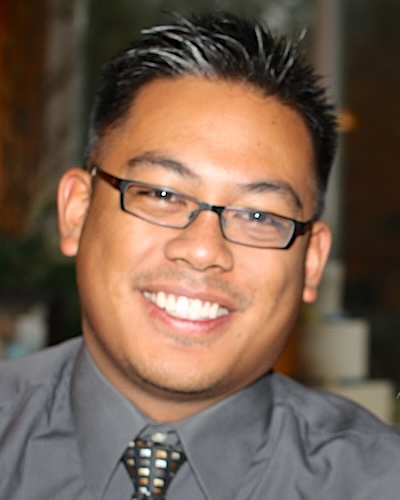
Occupational Justice ⟩
November 9, 2010, by Pierre
What is occupational justice? Is it like social justice? Kind of. Social justice may look at making opportunity equal to all to reduce differences; occupational justice looks at the unique differences of individuals and groups and how to help them access opportunities as they relate to occupations. It’s interesting to be learning more about how occupational therapy goes beyond the clinics and pervades our society, our culture, politics, and so on. OT in Occupational Justice attempts to meet the unique needs of the individual in order to access the opportunity of health through occupation.
Do you have a passion to help others and to help them access their natural need and desire to ‘do’ activities, to live life, and to be a part of our society? Occupational therapy is a field that is present in many different areas — this is a sign of OT’s strength. Our profession pervades so many aspects and it’s due to the great importance that people need and want to do occupations-activities-life. We seek to help others improve and access a quality of life that is rightfully theirs within a diverse culture such as ours.
⋯
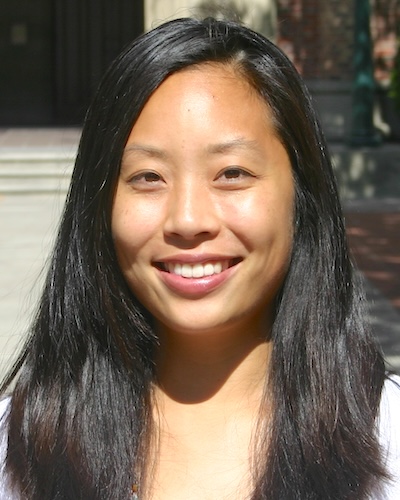
The Influence of Language ⟩
November 8, 2010, by Yao
Language is more than just what you say and it is important that we enable rather limit in our occupational therapy dealings.
I recently attended a charity event that was geared towards promoting awareness of an issue that has affected countless women across the globe, sex trafficking. Attending this event re-enforced the idea that language is a powerful form of expression and can truly affect the way that one presents oneself as well affect how people view and treat others. The event itself although well intentioned employed a host that seemed to be ill informed about how to properly address the issue of sex trafficking and those that have survived it and are affected by it. In my opinion, the host should have been using language that empowered the women affected and placed them in a positive light as survivors but instead used language that marginalized these women as “damaged” people that had “chosen” this life and they were not able to help themselves. The language that was used placed these survivors in a category of disempowerment as well as subordination, instead of encouraging a new life full of opportunities the language seemed to permanently remind them of their traumatic past and permanently place them in a subordinte position to everyone else. Comments such as “I have nothing in common with these people” and “we help these people live the right way” were made. Instead of raising awareness and increasing empathy, it seemed to further differentiate and marginalize, placing those that have not experienced the effects of sex trafficking in a more highly regarded place in society. It seemed as if the language was solely identifying this population through a label rather than their individual characteristics — as if dehumanizing the already dehumanized. Instead of teaching acceptance and expressing “awe”; in the strength and endurance of these women, the language seemed to imply that they had been a part of something that they should be ashamed of and that the organizations hosting the event could help them assimilate into mainstream society. Not once did it speak of the strength of these women, not once did it emphasize their adaptability, and not once did it promote their individuality. They were seen as a part of a group that needed help: victimized women — no more, no less.
In occupational therapy there is a concept that is used when addressing the various populations that we work with and it’s called person-first language. Person-first language is an important tool to be conscious of not only as an occupational therapist but as a citizen of the world as well. By definition:
. . . people with disabilities be identified first as individuals. “Person First Language” — referring, for example, to a “woman who is blind”; rather than to “a blind woman” — is a form of political correctness designed to further the aims of the social model by removing attitudinal barriers. (“Definition of Disabilities”, 2010, disabled-world.com/disability/types)
It should also be recognized that some times person-first language is not preferred depending on the person you’re talking to but for this event in particular I felt that person-first language would have been a more appropriate choice of language, focusing on the abilities and opportunities that these women do posses and focusing on their ability to engage in life and obtain a quality of life that is most beneficial and satisfying to them.
I in no way mean to imply that these organizations didn’t help these women. These organizations are great resources and provide many supportive services. It was the language used by this particular host that had altered my view of this event. It only took a few words to change the mood of that night. Imagine what a few words can do to a person. As much as people play with language in politics and law, it is extremely important to consider how it can affect both patients and providers in the medical sphere. A label, a category and a group all have certain connotations and many of those connotations can limit someone’s potential. Occupational therapists understand that our clients are constantly changing throughout treatment and therefore find it important to be cognizant of the language used to address patients and their situation. Words can either be a vehicle for positive change or a powerful tool to stop it. We should think twice about the language we use.
⋯
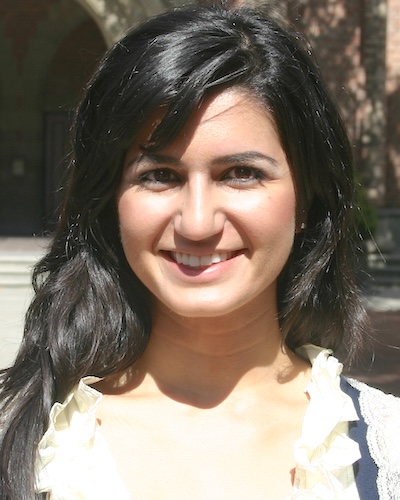
What makes USC’s program unique? ⟩
November 8, 2010, by Helen
Community Fieldwork Getting Involved International What are OS/OT?
The professors at USC support your learning in every way possible.
In the past couple weeks, I have held information sessions at UC San Diego, UC Davis, Sacramento State, and UC Berkeley. I am constantly being asked why I chose USC’s program and what makes USC’s program unique. From holding these information sessions and meeting so many ambitious and passionate future applicants I have had the opportunity to reflect more on the profession of Occupational Therapy. I have also had time to reflect on how attending USC’s program has influenced my professional future and outlook about the profession. The faculty at USC has such immense confidence in their students and provide the support for their students to not only be great clinicians, but to be leaders in their profession. This investment in the students is what has made my learning experience as a graduate student so unique.
In the last year, I have been provided with the opportunity to attend Lobby Day in Sacramento, advocating for Universal Health Care. Additionally, I was given the opportunity to do an international fieldwork in Ghana. I have also had the opportunity to attend OTAC conference in Pasadena, AOTA conference in Florida, as well as the student conclave in Kentucky. Attending these events, networking with current practitioners and leaders in the field, and learning what direction research is moving towards, have intertwined to inspire me about my profession. I am so proud to be an Occupational Therapy student at USC and am so grateful for being able to attend a university where the faculty truly supports your learning. The professors and faculty hold a holistic view of their students, emphasizing that it is not only valuable to be an excellent student doing well academically, but it is equally valuable to gain practice experience, leadership experience, research experience, and to be knowledgeable about the theory behind practice. By valuing all these learning components, I have a strong sense of the history of my profession, where we stand currently in our health care system, and what needs to be done in the future. The field of Occupational Science was founded at USC, Jane Ayres was a professor at USC researching Sensory Integration techniques, Lifestyle Redesign was established at USC, and our dean Florence Clark is the president of the AOTA. So to answer the question of why I chose USC and why I feel USC is ranked so highly for our OT program, I feel that it is because all these elements combine to create passionate practitioners who think broadly about the field of Occupational Therapy.
⋯
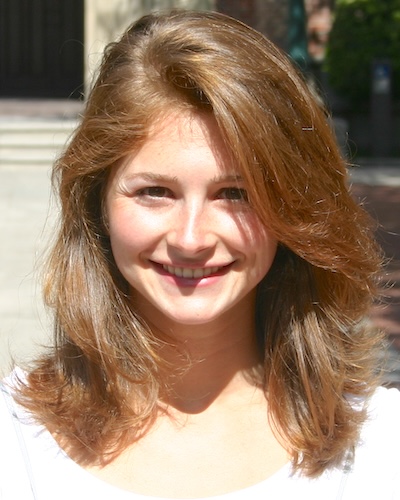
My First OT Summer ⟩
November 7, 2010, by Amanda
An introduction to the summer coursework!
The first summer studying occupational therapy at USC lays down the foundation for analyzing occupation. During these intensive 8 weeks, you can expect to be in class a lot, but also you can expect to get to know your classmates and enjoy the time!
There are three classes that you take that summer: kinesiology for occupation, neuroscience for occupation, and occupational therapy skills. Kinesiology and neuroscience have both a lecture component to learn about important concepts relevant to occupation and a lab component where you apply these concepts. For example, you may spend kinesiology lecture learning about actions of muscles, but then in lab you would apply your knowledge of the muscles to analyze brushing your teeth. An example for neuroscience lecture is you will learn about the process of visual-perception in the brain. In lab you may take these concepts to understand how a deficit in this area affects how you experience activity. This allows you to unite your knowledge of the underlying components to the actual activities. Also, there are wonderful instructors and teaching assistants available to go over, explain or clarify difficult concepts . Although it at times felt like a lot of class in just 8 weeks, the structure of the summer classes provides many resources so you may be successful in your coursework!
The third course, Skills for Occupational Therapy, is a student favorite! This course allows your creativity to flow! Your instructor has a few different activities or crafts for that week. You choose what you would like to do and work at your leisure. After a morning of lecture and lab, Skills was a time to relax and be with your classmates and just proves how therapeutic individually meaningful activity can be!! You go beyond simply participating in craft and activity and analyze what is necessary to do the activity and what are the benefits to choose one activity over another. You are beginning to think in the occupational therapy mindset to explain the choice of one activity and what skills are necessary for participation!
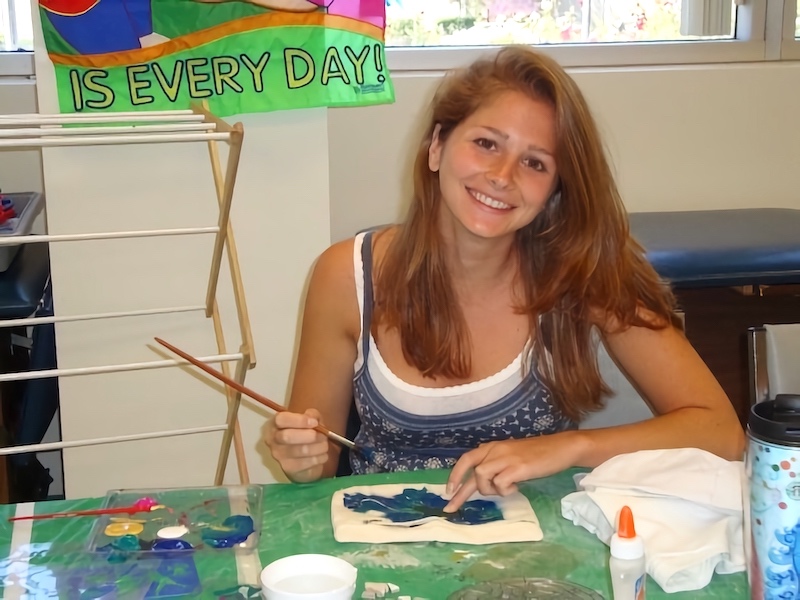
Me working on a skills project!!
This summer session is full-time and you are at school pretty much all day. I think the combination of being excited to start occupational therapy school and having this opportunity to be with all your classmates makes it feel less like “too much school” and more about the process of it all!
⋯
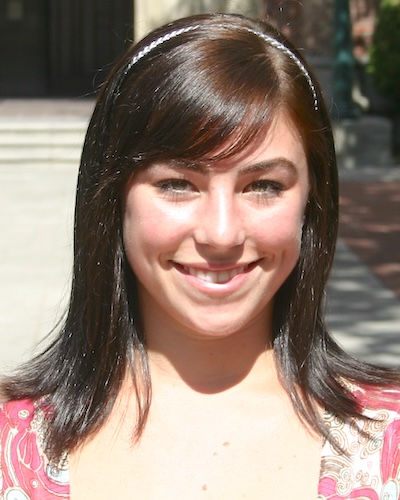
Defining Occupational Therapy ⟩
November 6, 2010, by Austen
In class last week, we discussed how 40 years ago occupational therapy struggled to define itself. The boundaries and responsibilities of the occupational therapists were vague, the scope of practice was not clearly delineated, and many did not understand what it was. Unfortunately, we are still in that same situation today. Individual occupational therapists define the profession differently, they practice differently, and as a result, much of the public is unaware we exist.
During our discussion, I immediately started asking myself, why is it that our profession has not been able to find a simple definition? How can we still be stuck in the same situation as decades ago? Have we made no progress in establishing ourselves?
At first, these questions were discouraging. I felt hesitant about my choice to enter a profession that cannot explain itself in a uniform and definite way. I was a little bothered by the fact that I will have to explain what occupational therapy is to most people I encounter. I already struggle with a solid explanation of the profession.
Thinking about it a little longer, I realized that occupational therapy’s lack of a straightforward definition is not necessarily a bad thing. In fact, I think it is a beautiful thing. It is not appropriate for our profession to define ourselves as simply as other professions like accountant, lawyer, or stockbroker. We have the freedom to work in so many different settings with such different populations that the responsibilities, tasks, and skills vary from job to job. It would be limiting to pick a more precise definition of occupational therapy.
My favorite part of occupational therapy is its flexibility. Occupational therapists are able to work anywhere and with anyone. I would much rather have a variety of opportunities available to me at the cost of taking 30 seconds to explain what occupational therapists do. Life is full of sacrifices. Occupational therapy as a profession is worth the struggle of finding a definition because in the end, we know that the opportunities are endless, we will love what we do, and we will be able to change lives.
However, it does not hurt to advocate for our profession and get us further out in the public eye. We still need to educate everyone we talk to, get others involved, and spread our love of occupational therapy. If we show excitement and passion about our profession, it will inspire others. We should not be discouraged by the unawareness and ambiguity that exists, but instead motivated to change it.
⋯





